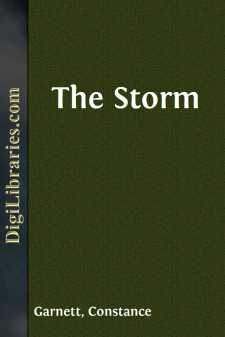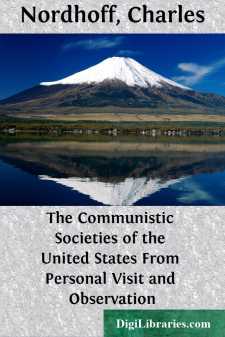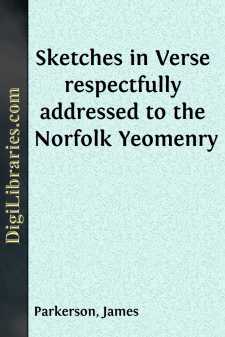Categories
- Antiques & Collectibles 13
- Architecture 36
- Art 48
- Bibles 22
- Biography & Autobiography 813
- Body, Mind & Spirit 142
- Business & Economics 28
- Children's Books 17
- Children's Fiction 14
- Computers 4
- Cooking 94
- Crafts & Hobbies 4
- Drama 346
- Education 46
- Family & Relationships 57
- Fiction 11829
- Games 19
- Gardening 17
- Health & Fitness 34
- History 1377
- House & Home 1
- Humor 147
- Juvenile Fiction 1873
- Juvenile Nonfiction 202
- Language Arts & Disciplines 88
- Law 16
- Literary Collections 686
- Literary Criticism 179
- Mathematics 13
- Medical 41
- Music 40
- Nature 179
- Non-Classifiable 1768
- Performing Arts 7
- Periodicals 1453
- Philosophy 64
- Photography 2
- Poetry 896
- Political Science 203
- Psychology 42
- Reference 154
- Religion 513
- Science 126
- Self-Help 84
- Social Science 81
- Sports & Recreation 34
- Study Aids 3
- Technology & Engineering 59
- Transportation 23
- Travel 463
- True Crime 29
Sort by:
by:
Various
LALEHAM PARK: Circumstances, in themselves trivial, often confer celebrity upon places hitherto of unlettered note. Thus, a beautiful villa at Laleham, a village in Middlesex, eighteen and a half miles south west of London, has acquired frequent passing notice from its having lately become the temporary residence of the young "Queen of Portugal," whose removal to England appears to have been a...
more...
by:
Unknown
JACK and JILL,Went up the hill,To fetch a pail of water,Jack fell down,And broke his crown,And Jill came tumbling after.Then up JACK got,And home did trot,As fast as he could caper;DAME GILL did the job,To plaster his nob,With Vinegar and brown paper.Then JILL came in,And she did grin,To see JACK’S paper plaster,Her mother put her,A fools cap on,For laughing at Jack’s disaster.This made JILL...
more...
MABEL MARTIN. A HARVEST IDYL. Susanna Martin, an aged woman of Amesbury, Mass., was tried and executed for the alleged crime of witchcraft. Her home was in what is now known as Pleasant Valley on the Merrimac, a little above the old Ferry way, where, tradition says, an attempt was made to assassinate Sir Edmund Andros on his way to Falmouth (afterward Portland) and Pemaquid, which was frustrated by a...
more...
by:
Mark Clifton
One minute after the regular report call from the planet Eden was overdue, the communications operator summoned his supervisor. His finger hesitated over the key reluctantly, then he gritted his teeth and pressed it down. The supervisor came boiling out of his cubicle, half-running down the long aisle between the forty operators hunched over their panels. "What is it? What is it?" he quarreled,...
more...
INTRODUCTION Up to the years of the Crimean War Russia was always a strange, uncouth riddle to the European consciousness. It would be an interesting study to trace back through the last three centuries the evidence of the historical documents that our forefathers have left us when they were brought face to face, through missions, embassies, travel, and commerce, with the fantastic life, as it seemed...
more...
by:
Don Marquis
PROEM "SO LET THEM PASS, THESE SONGS OF MINE" So let them pass, these songs of mine, Into oblivion, nor repine; Abandoned ruins of large schemes, Dimmed lights adrift from nobler dreams, Weak wings I sped on quests divine, So let them pass, these songs of mine. They soar, or sink ephemeral— I care not greatly which befall! For if no song I e'er had...
more...
by:
Charles Nordhoff
INTRODUCTION Though it is probable that for a long time to come the mass of mankind in civilized countries will find it both necessary and advantageous to labor for wages, and to accept the condition of hired laborers (or, as it has absurdly become the fashion to say, employees), every thoughtful and kind-hearted person must regard with interest any device or plan which promises to enable at least the...
more...
by:
James Parkerson
At one o’clock the busy seen begin,Quick to the hall they all are posting in;The cautious merchant takes his stand,The farmer shows the product of his land:If wheat the merchant says it’s damp or cold,If Dawling Market, that’s the case I’m told.If it is barley he’ll your mind unhinge,And say good Sir it has a gloomy dinge;Reduce three shillings of the currant price,And with the farmer he’ll...
more...
by:
Frank Harris
As soon as the Elder left the supper-table his daughter and the new schoolmaster went out on the stoop or verandah which ran round the frame-house. The day had been warm, but the chilliness of the evening air betokened the near approach of the Indian summer. The house stood upon the crest of what had been a roll in the prairie, and as the two leant together on the railing of the stoop, they looked out...
more...
CHAPTER I We are not aware that the infancy of Vivian Grey was distinguished by any extraordinary incident. The solicitude of the most affectionate of mothers, and the care of the most attentive of nurses, did their best to injure an excellent constitution. But Vivian was an only child, and these exertions were therefore excusable. For the first five years of his life, with his curly locks and his...
more...











